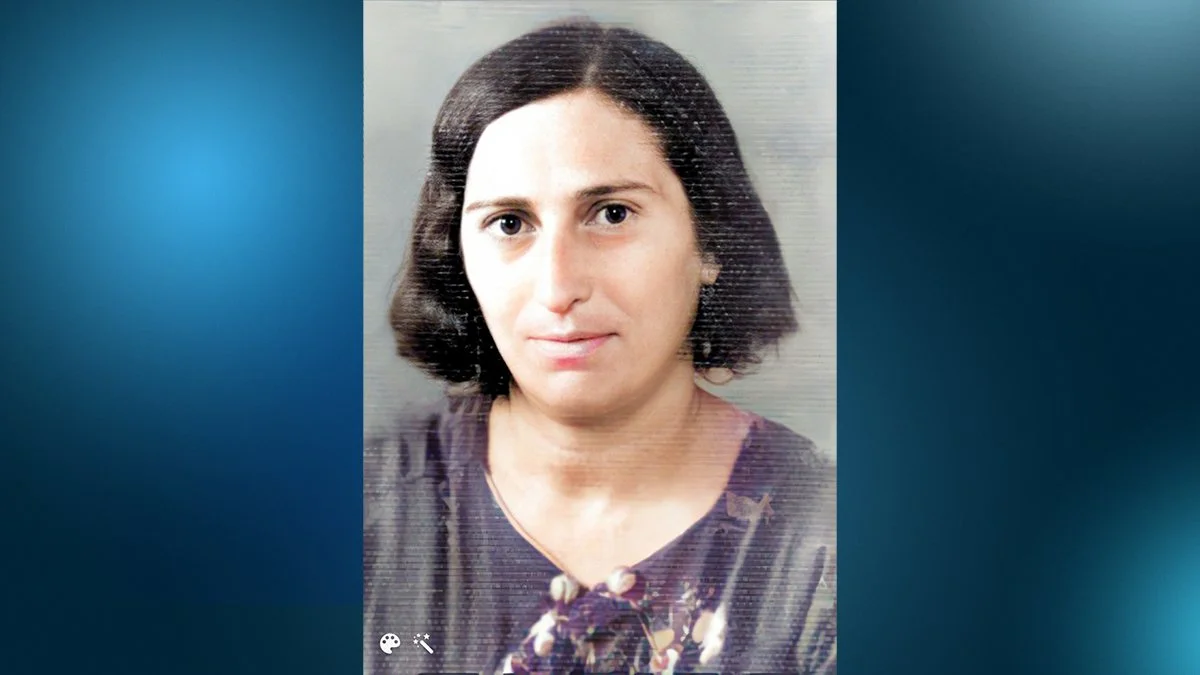Chaviva
BY YUVAL
"I wonder if my family had continued that tradition . . . would I have been more connected to my culture?"
Yuval: Hi, my name is Yuval, and I will be interviewing...
Yafit: Yafit. I am Yuval's mom.
Yuval: I know that your middle name is Chaviva, after your grandmother. Can you tell me about that?
Yafit: There is a tradition in the Sephardic family, which is Jewish families that came from North Africa, to name grandkids after their grandparents.
Yuval: Do you like it as your name?
Yafit: So my grandmother's story is a sad story, cause they moved from Iraq around thirty-one I think.
And when around fourty-eight she went to collect olives with her kids and neighbor kids and... terrorists from Jordan killed, they stabbed her and two other kids, the neighbor kids. Her own kids are my uncles. They escaped. And my mother was three years old when that happened, so she didn't have any memories of her mom.
As a child, I really, really disliked that name. But I... when I was a teen, I felt really uncomfortable being named after someone who died an unnatural death. It felt really hard for me. It felt like bad luck. I just didn't like it. And my mother never spoke about her mother, so I didn't even have any... I didn't feel connected to that. It didn't have a meaning for me. It was just something that no one spoke about and that was, like, really bad and sad. So around the age of fifteen, I, I told my mother that I really don't like it and I wanna take it off and she said, “You know, you can do whatever you want.” And she had to approve it because before you're sixteen in Israel, you have to get a signature from your parents if you wanna change your name. And... and I went, like I went all the way to the offices and I was planning to take it off. And when I was there and waiting in line—and she didn't come with me, my mom, but she signed already. I just felt like I can't. I just felt like... I have this name to carry on with me. That's the only thing I have really. And, um... I don't know. I couldn't, so I didn't.
And I think for years I didn't really, like, think about that. And then when I was pregnant and I got to my third kid, it was twins, and my grandmother had two pairs of twins, and none of my cousins have twins. And for a moment it felt like I, I got a gift from her, like I was chosen, like no one else did, and suddenly the name had meaning. Like suddenly, it felt... there is a connection between me and her, even though she's not present and I never knew her.
Yuval: So, this interview was a lot for me. I'm from a mixed background and I don't really know a lot about some of the different parts of my background. So this interview was... it meant a lot to me. I got to explore a side of my heritage that I’ve never really explored, my Iraqi side. And this interview made me think a lot about the name tradition that my mom, my Ima, talked about.
And I'm often sad that I don't really have much connection to certain parts of my culture and my heritage, and I wonder if my family had continued that tradition and I would've had a name of my grandmother, then would I have been more connected to my culture?
But then, I think, I feel if I had been given the name then it would've been sort of an easy way of connecting with my culture, cause I don't really have to put in effort into connecting with it. So, I appreciate those efforts that I have to put in to connect because the result is I am finding a lot of new things about my culture, but I'm also, it's like, bittersweet, sentimental.
And I feel like having the name would be nice, but because I don't have the name, I have to learn to carry my family and their stories in different ways. And I'm really working on that, because that is a really big part of my life and my story. My family's story.

